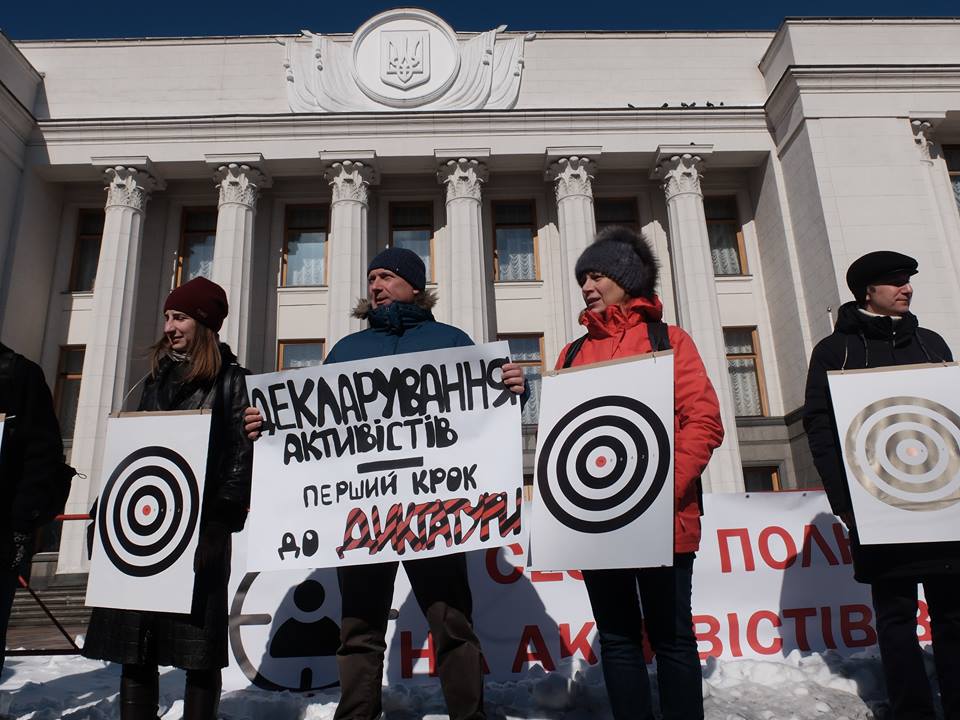1. Ukrainians still perceive corruption as one of the country’s biggest problems.
2016 Global Corruption Barometer survey from Transparency International showed that the problem of corruption is still one of three biggest challenges for Ukraine — according to 56% of respondents.However, only 29% of respondents said they were ready to stop paying bribes if it would help to stop corruption. This fact proves that the problem of corruption in Ukraine is multidimensional — citizens are ready to pay bribes for a number of reasons, while officials are gladly demanding and taking bribes.
2. Concrete experience of Ukrainian citizens with regard to corruption: data vary
When one delves into the personal experience with corruption Ukrainian citizens had, polls show different results. According to the research conducted for the National reform council by TNS, only 28% of respondents perceived corruption in their personal experience — way less than the perception level shown in TI’s research. A poll by KMIS showed that the most corrupt sphere in Ukraine is the state healthcare system — 67,9% said they had to give bribes there. A new project of healthcare reform is about to increase the importance of insurances and private medicine, so this problem should be dealt with in future. It should be noted that, according to research by KMIS, all other spheres are way less corrupt. The one “in second place,” social payments, enabled corruption for 23,4% of respondents.
According to the latest Corruption Perceptions Index conducted byTransparency International, Ukraine still sits near the bottom of the list; people’s perception of how often they experience corruption puts our country on 130 place of 168.
3. Ukraine’s anticorruption reform was launched in spring 2014 and is planned to be ended in 2018
Its main goal is to make civil service more transparent and accountable — and to enable severe punishment for corrupt officials. Another important aspect of the reform is control of finances of political parties. They will also receive funding from state so that they would be less dependent on oligarchs.
4. Anti-corruption institutions: visible progress
Recently new anticorruption state institutions were established in Ukraine. The National Anti-corruption Bureau of Ukraine (NABU) takes care of prevention, detection, termination, and investigation of corruption crimes. National Agency for Prevention of Corruption (NAPC) works on the development and implementation of governmental anticorruption policy, verifies the declarations of officials, and monitoring of their lifestyles to identify fraud in their declarations and unjust enrichment. Meanwhile, Specialized Anticorruption Prosecution (SAP) is responsible for the procedural oversight of criminal investigation conducted by NABU detectives and conducts public prosecution for corruption cases in court.
5. These institutions are functioning properly, when not opposed by politicians
According to a report by the Reanimation Package of Reforms, as of September 2016, NABU and SAP have started 208 proceedings concerning heads of state-owned enterprises, prosecutors, judges and other officials; 100 notes of suspicion have been served. Moreover, 25 cases have been opened. As of August 2016, 45 million UAH were seized and returned to the state budget. Another major achievement was reached by NAPC — the launch of electronic declarations system, due to which about 103000 officials who occupy high-tier positions in civil service have already declared their assets.
6. Judiciary: still a problem
One of the problems in the proper functioning of the institutional anti-corruption system is a lack of proper reform of the judiciary system. Proceedings can be started, cases can be prepared and brought to court, however the judiciary system remains unreformed and therefore courts can block anti-corruption cases or take absolved rulings about corrupt citizens. This has lead to an idea of establishing another institution, a specialized independent anti-corruption court. Establishing of this court can significantly change the situation with legal consequences of corruption in Ukraine.
7. Ukraine develops flagship anticorruption / government transparency projects
For example, ProZorro system allowed taking the public procurement system under control, according to a RPR report. Since February 2015 the system was used by 15,510 government commissioners to release 295,970 bids with the estimated cost of 155.56 billion UAH. Potential savings amount to 6.06 billion UAH.
8. A sabotage of anticorruption reform is coming from political elites
Numerous MPs opposed the introduction of electronic declarations system and stalled this process. Some of them belong the “old guard” of Yanukovych times, but there are also people tied to President Poroshenko who opposed these developments. When the e-declarations were published, they described the unimaginable wealth of Ukrainian civil servants, so it became clear why this initiative was opposed so strongly. Elites also have made attempts to undermine the independence of NAPC, or to organize an institutional conflict between NABU and Prosecutor General’s Office.
9. Civil society is an important actor in the fight against corruption
Multiple NGOs focused on anticorruption activities were created. One of the most influential is The Anti-Corruption Action Center (ukr.aw) — they look out for corruption cases and for evidence, and the call on law enforcers and regulators. Journalists launched projects to investigate the corruption cases, such as Slidstvo.info on Hromadske/1st National, Schemy on Radio Svoboda, Ukrainska Pravda and others.
Prepared by Vitalii Rybak, Internews Ukraine, based on materials by Transparency International, TNS, KMIS, Reanimation Package of Reforms, The Reforms Guide and Euromaidan Press.
[hr]Vitalii Rybak has a Master's degree in German and European Studies. He is an alumnus of the National University "Kyiv-Mohyla Academy" (Ukraine) and Friedrich Schiller University of Jena (Germany). He used to write for "Ukrayinskyi Tyzhden" magazine and "Nürnberger Nachrichten" newspaper. Currently, he coordinates EU-related projects at "Internews-Ukraine" NGO.




